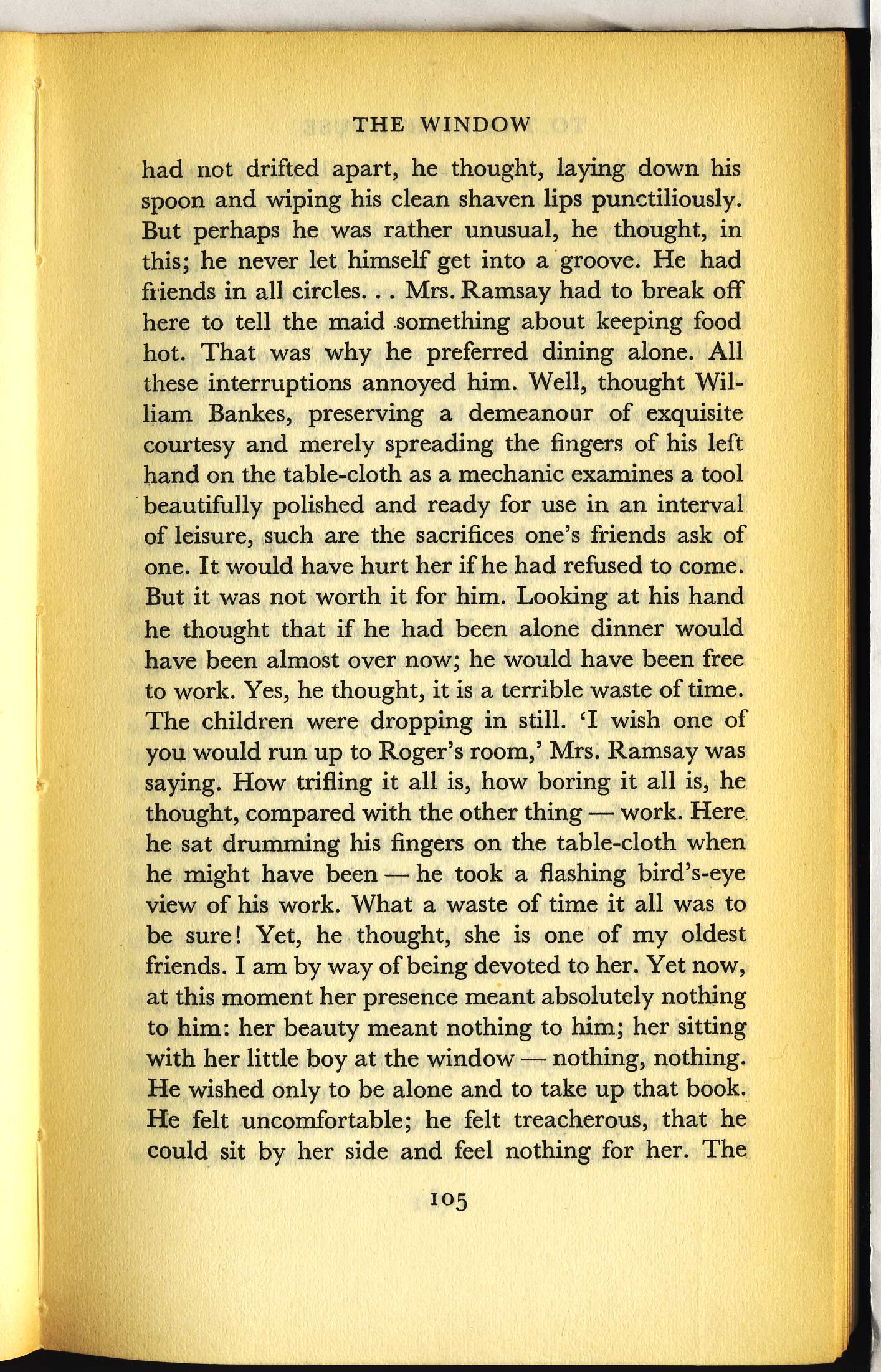
THE WINDOWhad not drifted apart, he thought, laying down hisspoon and wiping his clean shaven lips punctiliously.But perhaps he was rather unusual, he thought, inthis; he never let himself get into a groove. He hadfriends in all circles. . . Mrs. Ramsay had to break offhere to tell the maid something about keeping foodhot. That was why he preferred dining alone. Allthese interruptions annoyed him. Well, thought Wil-liam Bankes, preserving a demeanour of exquisitecourtesy and merely spreading the fingers of his lefthand on the table-cloth as a mechanic examines a toolbeautifully polished and ready for use in an intervalof leisure, such are the sacrifices oneŌĆÖs friends ask ofone. It would have hurt her if he had refused to come.But it was not worth it for him. Looking at his handhe thought that if he had been alone dinner wouldhave been almost over now; he would have been freeto work. Yes, he thought, it is a terrible waste of time.The children were dropping in still. ŌĆśI wish one ofyou would run up to RogerŌĆÖs room,ŌĆÖ Mrs. Ramsay wassaying. How trifling it all is, how boring it all is, hethought, compared with the other thing ŌĆö work. Herehe sat drumming his fingers on the table-cloth whenhe might have been ŌĆö he took a flashing birdŌĆÖs-eyeview of his work. What a waste of time it all was tobe sure! Yet, he thought, she is one of my oldestfriends. I am by way of being devoted to her. Yet now,at this moment her presence meant absolutely nothingto him: her beauty meant nothing to him; her sittingwith her little boy at the window ŌĆö nothing, nothing.He wished only to be alone and to take up that book.He felt uncomfortable; he felt treacherous, that hecould sit by her side and feel nothing for her. The105









